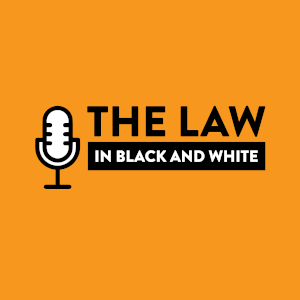By Thomas Sandstrom with contributions by Jonathan Greenblatt and Bryan Parker.
Last week, in a landmark decision for LGBTQ employment rights, the Supreme Court ruled 6-3 that the Civil Rights Act of 1964 applies to workplace discrimination on the basis of sexual orientation and gender identity. Title VII of the Civil Rights Act has protected workers for decades from wrongful termination by their employer based on a number of characteristics, including race and sex. However, protections pertaining to “sex” had not been inclusive of sexual orientation and gender identity. Such federal protection has been long sought after by the LGBTQ community.
The case before the Court, Bostock v. Clayton County, was a consolidation of two cases involving alleged workplace discrimination due to sexual orientation. In Bostock, Gerald Bostock was fired from his position in Georgia after he joined a gay softball league and promoted it at work as a means of volunteerism. In Zarda, the consolidated case, the plaintiff was a sky-diving instructor who alleged that his employer terminated him upon discovering his sexual orientation. Bostock was heard alongside R.G. & G.R. Harris Funeral Homes Inc. v. Equal Employment Opportunity Commission, a similar question of Title VII discrimination under the Civil Rights Act relating to transgender persons.
The Court’s decision, released June 15, was noteworthy not only because of its historic significance for the LGBTQ employment rights movement but also because of the surprise 6-3 vote. Trump appointee Neil Gorsuch authored the opinion, joined by fellow conservative Chief Justice Roberts and the four members of the Court’s liberal wing. Justice Gorsuch, who follows in his predecessor Justice Scalia’s footsteps as a proponent of the textualist form of statutory interpretation, concluded that “An employer who fires an individual merely for being gay or transgender defies the law.” Justice Gorsuch found that the words of the Civil Rights Act, which prohibits against employment discrimination “because of . . . sex” necessarily included discrimination on the basis of homosexuality or transgender status because an employer would be treating employees differently because of their sex (i.e., a man could be fired for dating a man whereas a woman would not). Although the opinion acknowledges that Title VII may not have been enacted in 1964 with homosexuality in mind, the Court gave no weight to the legislative history because the language unambiguously prohibits the discriminatory practice.
In a dissent joined by Justice Thomas, Justice Alito took issue with the majority’s textualist reading of the statute. Alito focused on the ordinary meaning of the statute’s words in 1964, writing “If every single living American had been surveyed in 1964, it would have been hard to find any who thought that discrimination because of sex meant discrimination because of sexual orientation—not to mention gender identity, a concept that was essentially unknown at the time.” He pointed out that the majority opinion left open questions about access to bathrooms, locker rooms, sports, college housing, religious employers, healthcare and free speech. In response, Justice Gorsuch cautioned that the ruling was indeed narrow and that future cases would need to address whether Title VII covers other sorts of discriminatory policies outside of employment decisions. Additionally, Gorsuch noted that some employers may have religious liberty claims under the First Amendment or the Religious Freedom Restoration Act that may allow them greater latitude in employment decisions and supersede Title VII protections.
Justice Kavanaugh authored a separate dissent, taking a slightly different approach from Alito. Kavanaugh focused on the distinction between “literal meaning” and “ordinary meaning” of statutory language, emphasizing that judges are bound by the latter. He found that the ordinary meaning of “sex discrimination” does not encompass sexual orientation, writing “In common parlance, Bostock and Zarda were fired because they were gay, not because they were men.” Like Alito, Kavanaugh found the majority opinion to be updating or rewriting Title VII rather than “humbly reading the text.”
The decision comes after a decades-long fight by LGBTQ employment rights advocates, who see the decision as long overdue. The ruling has the practical effect of allowing people who say they were discriminated against in the workplace based on their sexual orientation or gender identity to file lawsuits, just as people claiming race and sex discrimination may. Plaintiffs will have to offer evidence of the discrimination and employers may counter that they had reasons unrelated to discrimination for their decisions.
As part of its mission, Legal Innovators values diversity and inclusion and supports the full equality of LGBTQ employees. We are heartened by the Court’s decision in this case, but as the opinion notes, there remains many open questions that will have to be answered. Our hope is that future cases will build upon Bostock in resolving remaining issues in the struggle for full LGBTQ inclusion and equality. We salute the plaintiffs in the Bostock cases, including Aimee Stephens, the plaintiff in R.G. & G.R. Harris Funeral Homes, who did not live to see her case’s victory but whose bravery will be a lasting legacy in the fight for transgender rights.
About the Author:

Tommy Sandstrom is an attorney with Legal Innovators. Share your thoughts with our community on Twitter, Facebook, or LinkedIn.




